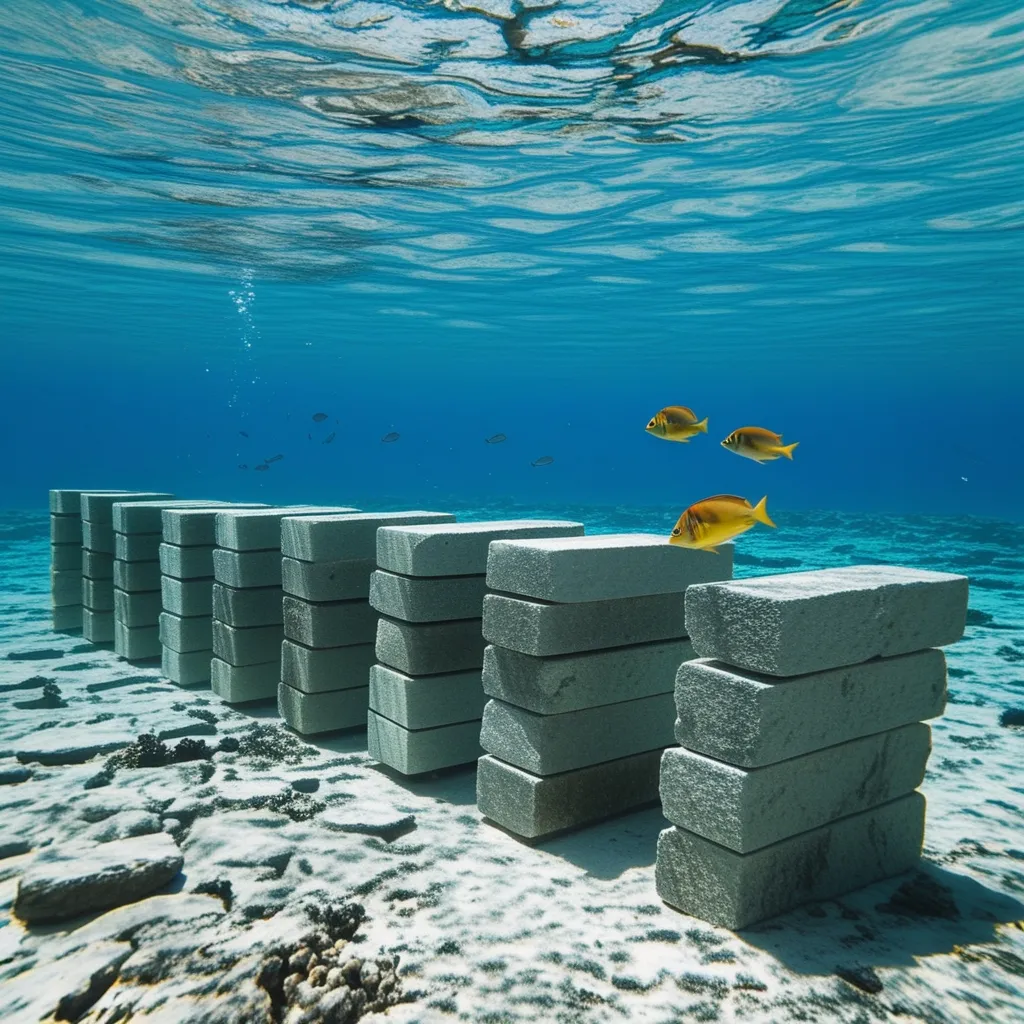The Bimini Road: Underwater Mystery or Natural Wonder?
Imagine swimming in crystal-clear waters, the sun filtering through the waves above you. Suddenly, you spot something strange on the seafloor - a series of massive, rectangular limestone blocks arranged in a neat line. Welcome to the Bimini Road, one of the most intriguing underwater mysteries in the world.
Located off the coast of North Bimini Island in the Bahamas, this peculiar formation has been captivating minds since its discovery in 1968. Is it the remnants of a lost civilization, perhaps even the fabled city of Atlantis? Or is it simply a fascinating quirk of nature? Let’s dive in and explore this enigma together.
Picture yourself as one of those first underwater archaeologists who stumbled upon this sight. You’d probably feel a mix of excitement and disbelief. The Bimini Road stretches for about half a mile along the seafloor, composed of massive limestone blocks that can weigh several tons each. Some of these bad boys are up to 13 feet long! It’s no wonder people started dreaming up wild theories about its origin.
Now, before we get too carried away with visions of merpeople and underwater cities, let’s talk about what the scientists say. Most researchers believe the Bimini Road is actually a natural geological formation. I know, I know - not as exciting as Atlantis, right? But hear me out.
The blocks that make up the “road” are made of something called beachrock. It’s a type of sedimentary rock that forms pretty quickly under the sand on beaches. When sea levels rise or beaches erode, this rock can get submerged and break apart, creating that cobblestone look that’s got everyone so excited.
But here’s where it gets really interesting. Scientists have done some fancy tests on these rocks, including radiocarbon dating. And guess what? They reckon the Bimini Road is only about 2,000 to 4,000 years old. That’s practically yesterday in geological terms, and way too young to be part of the legendary Atlantis.
Speaking of Atlantis, let’s chat about that for a minute. If you’re not up on your ancient Greek philosophy, Atlantis was this super advanced city that Plato wrote about. According to him, it existed about 9,000 years before his time and was a real marvel of engineering and politics. But then, disaster struck, and the whole city sank into the sea. Talk about a bad day!
Ever since Plato dropped that bombshell, people have been obsessed with finding Atlantis. So when the Bimini Road was discovered, you can imagine how excited folks got. It didn’t help that an American psychic named Edgar Cayce had predicted back in the 1930s that parts of Atlantis would pop up near Bimini around 1968 or 1969. Talk about timing!
Now, I’m not saying you should believe everything a psychic tells you, but you’ve got to admit, it’s a pretty cool coincidence. It’s no wonder that some people are still convinced the Bimini Road is more than just rocks.
But here’s where we need to put on our critical thinking caps. There’s a fine line between keeping an open mind and falling for pseudoscience. Some writers and TV personalities have made quite a career out of spinning yarns about lost civilizations and ancient apocalypses. It’s entertaining stuff, no doubt, but it’s important to remember that these theories often lack solid evidence.
One of the big problems with these far-out ideas is that they can actually be pretty disrespectful to indigenous cultures. When we attribute ancient achievements to some mythical lost civilization, we’re basically saying that the actual people who lived in these places couldn’t have built amazing things on their own. That’s not cool, and it’s got some ugly roots in some pretty nasty ideologies.
But hey, don’t let all this scientific debunking spoil your fun! The Bimini Road is still an awesome place to visit. Imagine snorkeling or diving there, floating above those massive blocks stretching out into the distance. It’s like being in another world, whether that world is natural or man-made.
And let’s be real - even if it’s not Atlantis, the fact that nature can create something so uniform and road-like is pretty mind-blowing in itself. Mother Nature’s got some serious skills!
It’s worth noting that similar formations have been found in other parts of the world, like Australia and Florida. This adds weight to the idea that the Bimini Road is a natural phenomenon. But don’t worry - there are still plenty of mysteries in the world for us to puzzle over.
The Bimini Road story is a great reminder of how important it is to balance our love of mystery with solid scientific inquiry. In today’s world, where information (and misinformation) spreads at the speed of light, it’s more crucial than ever to check our sources and approach these enigmas with a critical eye.
But that doesn’t mean we can’t have fun with it! Half the joy of mysteries like the Bimini Road is in the speculation, the what-ifs, the imagination it sparks. Just remember to take those wild theories with a grain of salt - or in this case, maybe a grain of sand.
So, next time you’re planning a beach vacation, why not consider a trip to Bimini? You can float above the “road” and decide for yourself what you think it might be. Is it the remains of a long-lost civilization? A natural wonder shaped by the forces of geology? Or maybe, just maybe, it’s a little bit of both - a natural formation that’s captured our imaginations and become legendary in its own right.
Whatever you believe, one thing’s for sure - the Bimini Road is a testament to the enduring allure of mystery and the human desire to uncover the secrets of our world. It reminds us that there’s still so much to discover, both above and below the waves. And who knows? Maybe the next great underwater discovery is just waiting for you to find it. So grab your snorkel, channel your inner explorer, and dive into the wonderful world of underwater mysteries. The ocean’s waiting - what will you discover?






